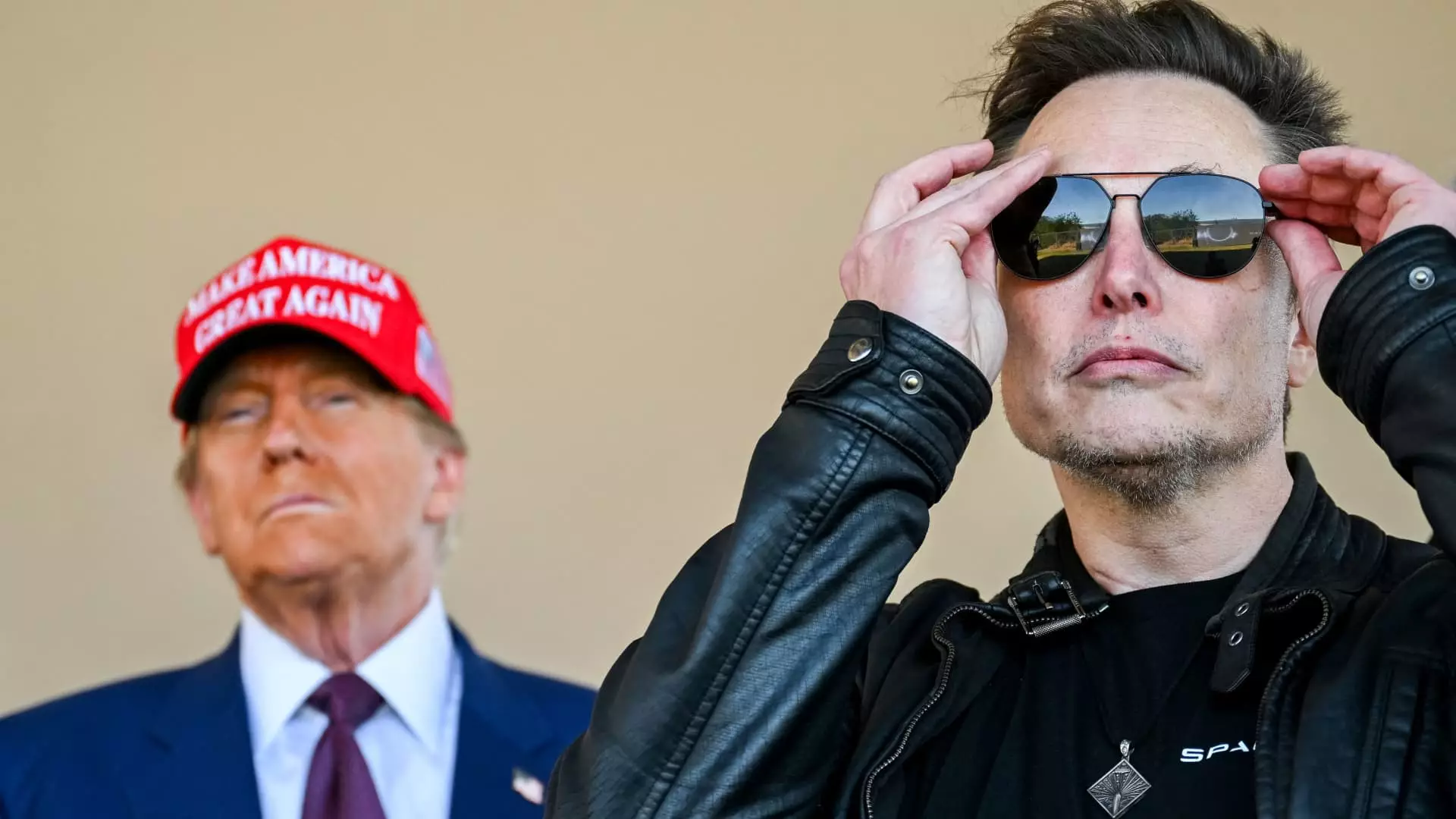In a remarkable turn of events, Tesla’s stock prices soared to unprecedented heights on Wednesday, signaling a crescendo of investor enthusiasm around the electric vehicle market leader. This surge not only marks Tesla’s comeback from a rocky start to the year but also illustrates the intricate relationship between political maneuvers and investor perceptions within the financial sphere.
The immediate catalyst for Tesla’s stock surge can be traced back to recent developments in the political landscape, particularly following Donald Trump’s electoral victory. Investors reacted enthusiastically, with shares reaching an intraday peak of $415—just above the previous record of $414.50 set in 2021. Analysts have pointed to this so-called “Trump bump” as a significant factor in Tesla’s market performance, suggesting that Musk’s vocal support for the GOP nominee has galvanized a more extensive base of investment enthusiasm. Experts, like Craig Irwin from Roth MKM, have highlighted how Musk’s political positioning may have effectively doubled Tesla’s pool of advocates, thereby enhancing the company’s credibility amid changing market dynamics.
The relationship between politics and stock performance is not new; however, what makes this instance particularly noteworthy is Musk’s proactive involvement in the electoral process. Reports indicate that he invested approximately $277 million into pro-Trump initiatives and utilized social media platforms to shape public perception, despite a deluge of misinformation. Such aggressive political engagement raises questions about the ethical implications of corporate influence on democracy and market forces, yet it undeniably seems to have yielded tangible financial rewards for Tesla and its investors.
Beyond the political excitement, Tesla’s recent performance can also be attributed to fundamental economic indicators. The company’s stock price has seen a staggering 66% increase in overall value this year, primarily arising after the election results, reflecting a growing optimism about the broader performance of the electric vehicle sector. Analysts across various financial institutions, including Goldman Sachs and Bank of America, have revised their price targets upwards, responding to a perceived shift in market sentiment regarding Tesla’s future prospects—particularly its potential in AI technology.
Goldman Sachs highlighted that investors are beginning to adopt a “forward-looking” stance toward Tesla, placing increased value on the untapped potential within the AI space. Despite earlier concerns surrounding declining revenue, driven mainly by intensified competition from emerging Chinese manufacturers, the company has managed to stabilize its profit margins, surprising many analysts with better-than-expected earnings.
Moreover, Musk’s assertion during a recent earnings call that he anticipates a vehicle growth rate of 20% to 30% next year, largely attributable to the introduction of more affordable models and advancements in autonomous technology, has also reinvigorated investor confidence. Such projections precede those made by financial analysts, indicating Musk’s shrewdness in balancing investor expectations with market realities.
While the immediate surge in Tesla’s stock is indeed exhilarating, it remains vital to take a step back and critically assess whether this growth is sustainable in the long run. The political winds will inevitably shift, and investor sentiment could coalesce around new realities as the complexities of the electric vehicle market unfold. Tesla’s future will hinge not only on the company’s strategic decisions but also on its ability to navigate an increasingly competitive landscape that includes not just rivals from China but also traditional automobile giants pivoting towards electric mobility.
Furthermore, stakeholder concerns regarding Musk’s dual role as both a business leader and a political influencer need to be addressed. This intersection could pose risks, particularly if investors perceive tensions or misalignments between Tesla’s operational goals and Musk’s political ambitions.
While Tesla’s stock rally reflects a potent blend of political dynamics and strategic vision, sustaining this growth in a volatile market will require careful navigation of both internal and external pressures. Investors should remain vigilant, balancing excitement with critical analysis as they engage with the current and future landscape of Tesla and the broader electric vehicle market.

